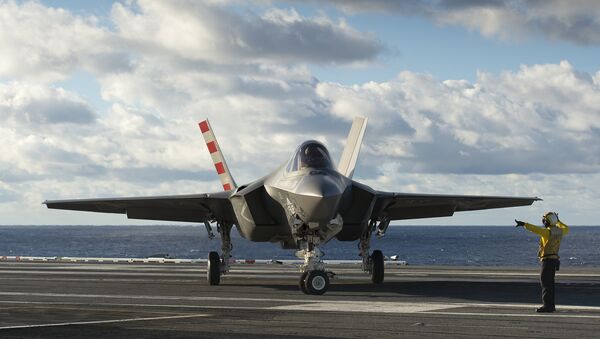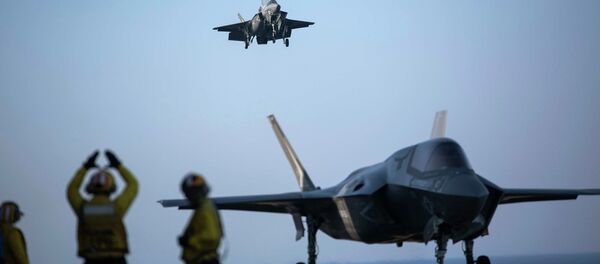The initiative was unveiled on July 13. Air Combat Command (ACC) Commander General Herbert Carlisle told the US House Armed Services Committee that he "would like" the F-35 jets "do some Baltic air policing" as soon as the fifth generation stealth multirole fighter becomes operational. He added that it could happen in the near future.
Carlisle has already discussed the idea with NATO Supreme Allied Commander General Curtis Scaparrotti, US Air Forces Europe — US Air Forces Africa commander General Frank Gorenc and Air Force commanders in the Baltics. They appear to be on board.
"As I talked to the air chiefs over in Europe in this past week, all of them are very interested for their own countries to be able to see the visibility of that airplane out doing operational missions," Carlisle said.
A day later, Commander of the Estonian Air Force, Colonel Jaak Tarien, said that if the Pentagon approves the measure, Estonia will be ready to host the F-35s.
According to Carlisle Warplanes, like the F-35, are meant to demonstrate capabilities and resolve when deployed to Europe. They also serve as "a great messaging tool," as the US general put it. He was referring to a cold spell between NATO and Russia that has seen the bloc enhance war gaming, increase defense spending, preposition military equipment, deploy more forces and open command and control centers on its eastern flank.
The North Atlantic Alliance views these measures as a message that is meant to show that the bloc is ready to protect itself from a non-existent threat emanating from Russia. For its part, Moscow has been alarmed with these developments, saying that they pose a threat to the region and beyond.
NATO has failed to focus on real challenges that need to be addressed, Russian Duma Foreign Affairs Committee chairman Alexei Pushkov observed. "Non-stop terrorism: Orlando, Baghdad, Istanbul, Nice, Almaty. Meanwhile NATO is worried about defensing the Baltics from an imaginary threat," he tweeted.
Терроризм нон-стоп: Орландо, Багдад, Стамбул, Ницца, Алма-Ата. Новая эпоха. Тем врем. в НАТО озабочены обороной Прибалтики от мнимой угрозы.
— Алексей Пушков (@Alexey_Pushkov) 18 июля 2016 г.




